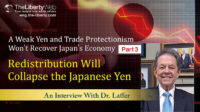An Exclusive Report That Puts an End to the Controversy Over the Nanking Massacre and Comfort Women
The Army Was Never Involved in Keeping Comfort Women. All Were ‘Volunteers’
— With regard to comfort women, did the army order women in the Korean peninsula to be rounded up or not?
Cayce: (silence for about 30 seconds) No, but the Koreans had a great deal of pride in being members of Japanese imperial army. Nowadays the people of the Korean peninsula say that they were invaded by Japan, but as far as I could spiritually see, at that time, the men were incredibly proud to serve as members of Japanese army, to face their battles as Japanese soldiers.
—With regard to comfort women, did any recruitment or advertising exist?
Cayce: Yes, I could see companies doing that. However, those companies, located on the Korean peninsula, were also recruiting on the Japanese mainland. When the Japanese army deployed to various places, like the Southern Front and so on, looting, assault, and rape were of course prohibited there. Therefore, in order to prevent such things from occurring, those companies recruited people in the adult business for paid work.
Women, who applied and passed the interview, and were definitely to be employed, received an explanation of what they would be doing and where they would be going. I don’t think that they were unpaid women.
Many of them had a profession. I suppose you might nowadays refer to them as adult entertainers. Those people were comprised the main force.
This voluntarism, in brief, is what the U.S. Army preferred to call local procurement. The local procurement of comfort women has been a hallmark of all U.S. Army operations. Even when they came to Japan, the U.S. Army established red light districts that the GI’s were allowed to use, but the Japanese Army never did that.
Since Japan and Korea were unified as one nation, women volunteered from both Japan and Korea.
The Amount of Remuneration for ‘Comfort Women’ Was in Line With That of Ginza Hostesses
— In conclusion, while it may be controversial, the heads of poor households might have sometimes felt some compulsion to give away their daughters in exchange for the money they owed.
Cayce: In particular, if one looks at the Korean peninsula, the women who volunteered as comfort women for the army managed to save up a lot of money.
So it was a very good source of income.
— Approximately how much above a normal income would you say it was?
Cayce: Well, it seems that it was a lot more than one could earn by working in one’s own country. So I think that there were many people who thought about saving up money, and sending it back, or bringing it back.
—More than 300 yen a month in those days was what a prefectural governor or someone would make, wasn’t it? Recruitment advertising that offered a salary equivalent to that of a colonel in the army – was that the kind of scenario we’re talking about?
Cayce: Well, if we are talking about that kind of money. Although I can’t give specifics, we’re definitely talking about a lot of money.
— A lot of money?
Cayce: Yes, a lot of money. Well, to put it into today’s perspective, you might say that it was on a par with that of a Ginza hostess. It comes close to the income of a girl in a Ginza club.
They were screened to a certain extent. They were selected based on their physical appearance and looks, and their remuneration was accurately calculated in exchange, Then, it was given to them.
Among Those Women Requesting Compensation Were Those Bribed by the Government to Be ‘Mourners’
――If so, were many Korean women, who submitted evidence more than 45 years after the end of the war, telling the truth that they were comfort women?
Cayce: (silence for about 20 seconds) No. They have been bribed by the government. They have been bribed, and have been told what to say. That place was full of ‘mourners’. If a funeral or something was being held, they went along, and were paid to sob inconsolably. They got paid to go there, and cried. It’s embedded in Korean culture, and that’s the kind of people they paid.
—So those people weren’t kidnapped by corrupt companies, that’s not what happened?
Cayce: Not at all, that was a complete pack of lies.
— Wow…. So that was a lie.
Cayce: Yes. I believe that it was a complete fabrication. Those people are ‘mouners’.
‘China’s Dutch Roll’ Predicted
Cayce: As an afterthought, China, beginning with the Senkaku islands issue, has accelerated its Japan-focused activities such as the anti-Japan mobilizations, demonstrations, and so on, but now the Chinese economy is really in desperate straits.
There’s been a slump in land prices, land prices have dropped by about a third, and the bubble has burst. Along with that, unemployment has surpassed the one hundred million mark.
In a country, said to have a population of some 1.3 billion plus, the unemployed number in the one hundred millions, and if you include families, it’s a country with about three hundred million unemployed people.
Since about three hundred million people in over a billion are unemployed, their discontent cannot be suppressed, and Deng Xiaoping’s idea – how should I describe it? – to encourage capitalism is now beginning to come under strain from the Chinese government. I think that it was Xi Jinping who was behind the blame levelled at Japan, and the declarations that the Mao Zedong years were a golden age.
Because of unemployment surpassing the one hundred million mark, violence, rioting, and the fear of a government overthrow, the Chinese are venting their frustrations as much as possible against Japan.
The reality is that unemployment exists, wages are falling, and the land prices are rising… the capitalist enclaves in the south like Shanghai and Hong Kong are competing with each other, since the people in the south piled into real estate investments and bought huge houses – the same things happened in Japan when people thought that the land prices would rise if people bought land before.
In this sudden crash, the banks are in a precarious position, and are now on the verge of collapse. Since it will be extremely tough to revamp this economy, China may think that a war, for example, may lift the spirits of its people. They are now doing there utmost to make Japan out to be the bad guy.
However, contrary to expectations, Japan is playing it cool. Since it is acting like a grownup, and not getting excited, the international community is starting to react by criticising China and South Korea. Since China did not expect these responses, it’s now a case where they’re racking their brains to find a solution to cope with it.
China prospered with a huge bubble economy during the Beijing Olympics and the Shanghai International Expo, but it has now entered a meltdown. China must revamp its economy, and it is unable to do so.
In reality, Japan has experienced all this before, but China doesn’t want to be told that. Their number one priority should be measures to counter unemployment and a crash.
The poor and the unemployed are dissatisfied now, but the managers, and the ones who are actually making the money, are extremely dissatisfied too. It is a fact that this element of dissatisfaction cannot be suppressed, and it is a source of the current uprising against Japan.
The Chinese are venting their frustrations as much as possible. They are adopting an attitude that embraces anti-Japanese activities as patriotic. The people of China are turning a blind eye on their guilty, asserting that the Japanese are acting in an inhumane, somehow barbaric manner, citing references to historically misunderstood issue such as comfort women, Nanking, and so on.
Perhaps these uprisings have been happening because Xi Jinping does not actually possess sufficient knowledge concerning China’s position in the international community, or how to behave, or how to sort out his economic problems, and so on. Hence I predict that China may soon perform a Dutch roll.
Related
- Master Ryuho Okawa Seriously Rebukes the Chinese, South Korean, and Japanese Politicians:
Ryuho Okawa, founder and master of the Happy Science Group, delivered a lecture titled "The power of religion to defend a nation" at the Happy Science temple named Fukuoka Shoshinkan in Fukuoka city on September 2, 2012....
- Fight with ‘Wisdom’ and ‘Justice’ when Dealing with the Hegemonic State of China
On Oct 6, 2012, Ryuho Okawa, founder and president of Happy Science, gave a lecture titled Love and Justice, which corresponded with the date of his group’s latest film release, The Mystical Laws. In this lecture, he clarified his view on important points that national leaders must consider when dealing with a hegemonic country in this current state of world affairs....
- Hillary Clinton, Secretary of State, Reveals What She Really Thinks:
Since China is continuing to develop its military capabilities and is appearing to oust the U.S. from the western Pacific, the Obama administration adopted a “return to Asia policy” in November 2011. The U.S. has shifted its commitments to Asia, ...


















